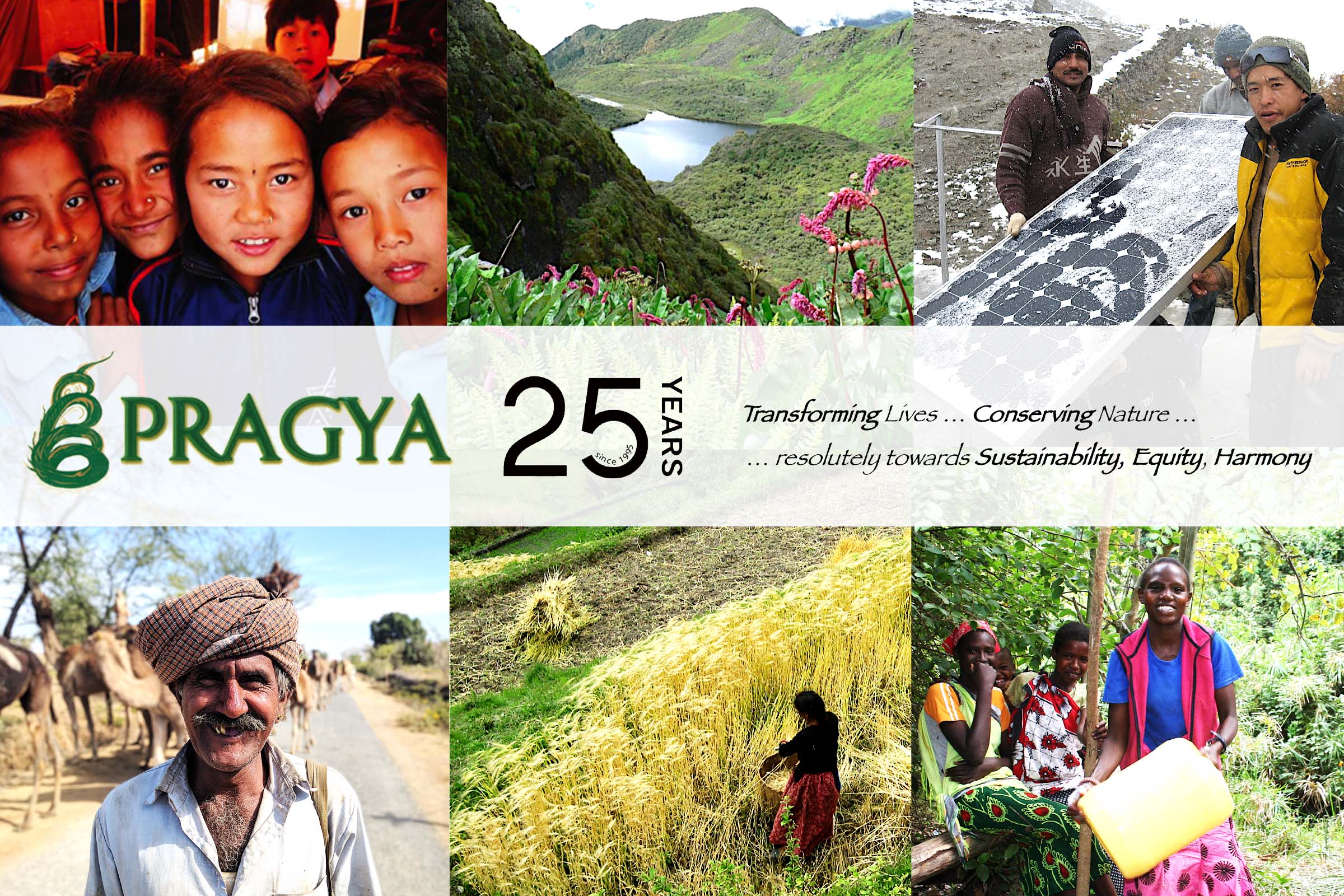
Pragya is a global family of coordinated, independently registered non-profit development organisations committed to poverty relief, environmental protection, access to healthcare and education, gender equality, social justice and disaster management. Established in the global south in 1995, Pragya secures transformational change at the grassroots, focusing on disenfranchised populations often living in remote and marginalised regions of the world that are left behind in the development process.
Pragya’s mission is to enable grassroots sustainable development for the poorest, most neglected communities in remote and marginal societies, in a way that preserves and promotes local cultures and fragile ecosystems.
Pragya’s vision is one of marginalised communities living dignified lives free from poverty and injustice, fully enjoying the benefits of development in a manner harmonious with cultural heritage and the natural environment.
The core values upon which Pragya is founded guide us in our fulfilling our mission.
Development without destruction
Pragya brings the benefits of modernity to the underserved in the most remote regions and fringe societies of the world, in a way that embraces the best of their cultural heritage and sustains their ecological base. We believe in a sensitive and nuanced approach to development that values and recognises the opportunities in cultural-ecological heritage. Our development solutions ensure the protection of fragile ecologies that characterise many of the locales in which we operate, sustainably integrating the rich environmental resources into our initiatives where appropriate. We also seek to blend the traditional with the modern, adopting appropriate technologies that complement and respect traditional knowledge and... Read More
· 18 species of medicinal plants and 2 wildlife species in the Himalayan Region and 5 species of medicinal plants in the Rift Valley conserved.
· 25 rural communities across hill/mountain and arid zones adapting to climate change and improving their management of land and water.
· Solar and wind micro-grids reached electricity to several villages with gains in education, healthcare and livelihoods.
· 22,000 women and girls have improved nutrition, health and education, and are asserting their rights to equality and safety.
· Women and girls in 300 villages with patriarchal communities recognize their power, assert themselves against violence and discrimination, and access their rights safety, equality and dignity.
· Traditional language, arts & crafts and knowledge systems preserved and valorised across 11 Himalayan communities.
· 17,000 children educated and 8500 youth vocationally trained and set on a path to improved futures and decent work.
· Children in 21 last-mile communities educated through mobile schools and non-formal centres and 330 marginalised schools improved through new teaching aids and education monitoring systems.
· 40,000 people have safe water and sanitation and improved dignity, and are secure from water-borne diseases.
· Women and children in 26 underserved communities have overcome malnutrition, and 10 underserved communities have adequate and timely healthcare.
· Safe water and sanitation and reduced water-borne diseases in 20 communities, schools, and migrant worker settlements.
· 20,000 small & marginal farmer households have improved farm productivity and incomes and are proactively adapting to climate change.
· Niche-sector livelihoods taken up by 26 communities with improved incomes and livelihood security at the bottom of the pyramid.
· Distress of the disaster-affected alleviated for 17 communities in areas vulnerable to natural disasters and climate change, and assisted build back.
· A community-based system for early warning and effective humanitarian relief and emergency response helping preparedness and mitigating risks for 17 remote vulnerable communities.
· Area-specific programmes propelled to address development of disadvantaged regions and their communities.
Board Members
Trustee
Chair
Trustee
Trustee
Select Staff Members
Manager – Finance & Accounts
Development Manager, UK
Sr. Manager, Pragya Solutions
Manager, Pragya Solutions